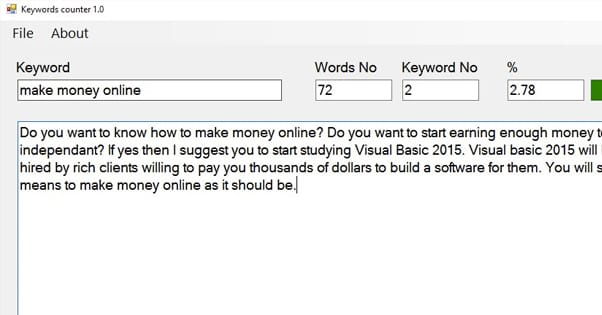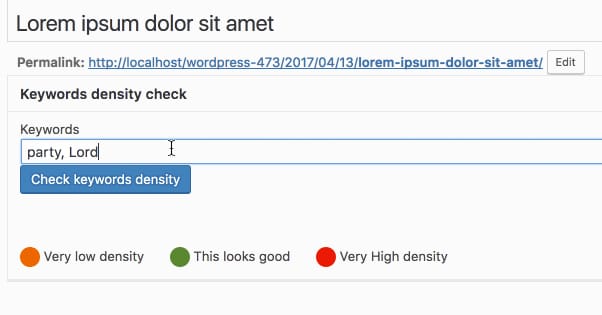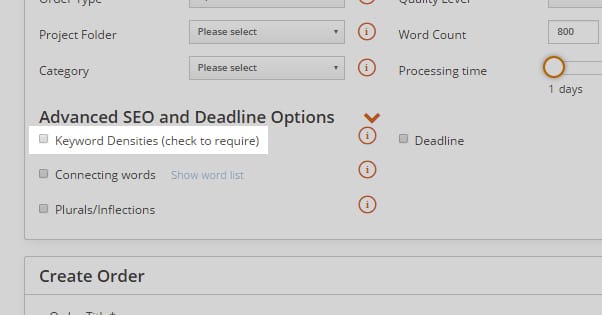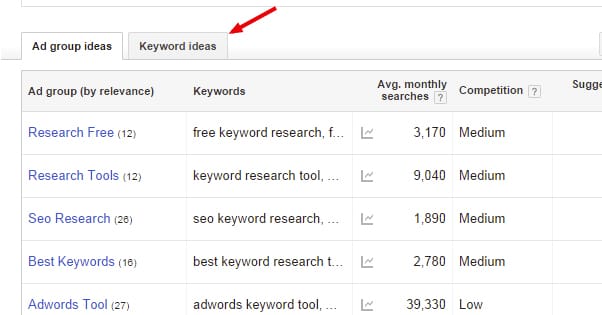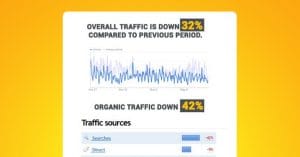Do You Need to Worry About Keywords When Blogging?
Published by Kenny Novak • Search Engine Optimization • Posted August 14, 2017 ContentPowered.com
ContentPowered.com
In my mind, attention to keywords is a hold-over from the days of SEO long past. However, many marketers still recommend using them, and I’m not going to disagree. It’s a matter of degrees, however. There are very definitely diminishing returns on the work you put into keyword research and utilization.
What Are Keywords, Mechanically?
A keyword can be pretty much any word you use in your writing. It’s only generic words, like “a” and “be” and “any” that aren’t going to count as keywords.
When Google reads your website, they scan and tear apart your content and analyze it. The use of words in the content determines what the content is about, just like with language, because Google is basically just interpreting language here.
In the old days, when Google was less sophisticated, you had to use specific keywords in order to let Google know what the content was about. If I wanted to write a blog post about a specific camera, I would want to use the exact model of the camera several times in the text, so Google knew to associate my content with that camera model.
When a user goes to run a search for that camera model, Google looks through their index for all of the content they know involves that camera model. Then they display that content in order of rank, based on all the other search engine factors.
These days, Google will understand that your site is about cameras and you’ll show up for most camera-related queries, with priority given to specific articles about specific models based on keywords.
So, you know, keywords are important to have, because without keywords you’re not actually writing content. If I tried to write this article without ever writing the word “keyword” it would look bad, read poorly, and be poorly indexed.
How People Use Keywords
The “old way” of using keywords comes from decades of SEO and has only changed in the last five or six years, so it makes sense that a lot of marketing professionals are still stuck using their old knowledge and are finding it harder to adapt to changing times.
Say you wanted to cover a topic like the best time to fly. You might do some keyword research and come up with relevant keywords, with phrases like “the best days to fly” and “optimal flight times” and “least crowded flights.” You find that they all have a reasonable amount of market share, they all get a decent amount of traffic, so they’re all good potential targets.
The old way to use SEO is to take each of those keyword phrases and write a blog post about them. You would end up with three different blog posts, all covering basically the same topic, each targeting a different keyword phrase. The key, back then, was to make sure you used that specific phrase several times in the post, and that you avoided using the other phrases to avoid cross-contamination.
This method of keyword utilization requires Google to use exact match keyword indexing, basically. If someone ran a search for “optimal flight times” they would see your blog post on that subject, but not the others, because the others don’t use that phrase.
These days, however, Google understands synonyms and similar phrases. If you wrote three blog posts covering the same topic, each using a different keyword phrase, you’re just as likely to run afoul of too-similar content penalties. It’s not exactly duplicate content, but when you have three or four blog posts on the same topic, Google doesn’t know which one is best. They spread out the value between them, whereas another site using all of those keywords in one post covering the topic is going to get all of that value concentrated in one place.
The New Paradigm: Conceptual Keywords
Google can understand language, and as such, you don’t need to worry about specific keywords anymore.
Okay, so that’s not strictly true. If you create a website about cameras without ever mentioning a specific camera model, someone searching for that specific model isn’t going to find your site. Specific identifiers like product models, names, and other such keywords are still valuable to use. However, more generic keywords like the flight examples above, and more importantly, minor variations on keyword phrases, are no longer that useful.
What you really don’t need to do is what sites like Textbroker encourage you to do as a client; care about specific keyword utilization and density. The idea is that you come up with a keyword like “optimal flight times” and then you use it a specific number of times in your piece, based on the total word count, to hit a magic ideal density of that keyword to get Google to identify it as the topic of your post.
Some people take forsaking keywords a bit too far. The example Moz uses is about flight planning. A hypothetical blogger creates a huge piece of content with a ton of data and resources for planning flights, including what times you are most likely to want to fly.
The problem, though, is that without care and attention to keywords at a basic level, you’re going to end up wasting value. If people are searching for the keyword “optimal flight times” and you don’t have a definitive section about optimal flight timing, your guide to flight planning isn’t going to rank for that query.
A Modern Hybrid
In many ways, keyword research today is the opposite of what it was a few years ago. Back before Google could parse synonymous content, you would take one keyword phrase, and you would split it up into as many variations as you could to make as broad a foundation as possible.
These days, you do the opposite. You take a huge list of keywords and you group them up into “categories of intent.” All of those flight planning keywords from above all combine into a guide to flight timing, yes, but you still need to use them. Use a couple of the keywords, the ones with the best metrics, and drop the rest or use them for supplemental content, guest posts, and the like.
This way you identify the intent of the people searching for information in your niche, so you’re not writing blind. You use keywords where they matter, but you don’t care much beyond that. You leave tertiary keywords alone, since they won’t bring you much benefit and might poach some value away from your flagship content.
So for flight planning, you might be able to write one piece of content that covers topics like “what time of day should I fly” and “what day of the week should I fly” to cover more temporally sensitive topics, by analyzing flight patterns and user history. Then you could write a second post about “what season should I fly” that takes into consideration location to and from, travel habits, popular destinations for various seasons, and so forth.
How You Should Use Keywords
Keywords and keyword research are tangibly useful when you use them the right way.
Here’s what you should be doing:
- Do your keyword research to identify the niches that are open, the niches that have a lot of competition, and the niches that have a lot of volume. Use these lists of keywords to create and prioritize topics for content discussion.
- Use important keywords and unique identifiers in your content to make sure you show up as an exact match in the search results. Non-exact match content can and will still show up, but you gain a little bit of value from being right on target with your content.
- Save keywords that have value but that don’t fit in your existing content, for use in making other kinds of content. Tertiary keywords might be good for videos, infographics, presentations, podcasts, guest posts, or other forms of content.
- Make sure to put your most important keywords in your meta title and description. These are the big blue link and description that show up in Google search, so they’re what people use to judge whether or not to click on your page.
How Not To Use Keywords
There are, however, some old habits and some bad pieces of advice that float around, as well as just old information that is no longer valid. Here’s what you should avoid:
- Never keyword spam. Shoehorning in 15-20 instances of the same keyword in a 2,000-word piece makes it look bad and read poorly. It’s even worse if your keyword is something clunky, like “best time for flights out of Orlando.”
- Don’t care about keyword density at all, really. There’s no such thing as an ideal keyword density, and density has been misused since it was created as a concept. It’s basically micromanaging to some ideal that doesn’t exist.
- Don’t use the keywords meta attribute. When it was created, it was a good thing; it allowed you to specify the keywords of your page and let your content work more organically. Then it was abused by spammers who added dozens of keywords, often unrelated, to content. That means it was impossible to use accurately, so Google just stopped using it. These days, using it is more a sign of spam than of value.
A Note About Voice Search
The prevalence of mobile devices and internet-connected assistants like Alexa, Echo, Google Home are quickly making 2017 the first major bump in voice search.
This is particularly interesting because of how people use search. When you search for something in Google, you tend to use a sort of specialized pidgin version of English specialized for communicating with a search engine, right? You don’t type something like “What is the best way to use keywords in blog posts?” Instead, you type something like “blog post keywords 2017.” Whole sentences are rare, because we know as people that the search engine doesn’t care about the extra words and that they don’t add value to the search.
When using voice search, either through a personal assistant device or through a phone voice search, you tend to speak in complete sentences. You actually ask the device a question. This is despite the fact that you know those extra words don’t matter. See, Google and these device creators encourage you to speak in full sentences, to give your interactions a more personal touch and try to sell their devices better. At the same time, it just feels awkward to not use full sentences when speaking aloud. That’s what makes this video so funny.
Google is using this voice data and their increasingly sophisticated algorithms to learn how to parse full sentences and answer questions based on them much more effectively. This means you don’t need to worry about oddly written keywords; organic vocal keywords will be increasingly common.
I would venture to guess that by 2020, a majority of searching will use more organic, vocal style keywords, and that will have a pretty big impact on keyword usage in SEO. The volume data for traditional keywords will drop, while organic voice keywords will rise. It makes our jobs harder, but it’s the way the future is looking.

